Big Sleep, The (1946)
“I don’t mind if you don’t like my manners. I don’t like them myself. They’re pretty bad. I grieve over them on long winter evenings.”
|
Synopsis: |
|
Genres, Themes, Actors, and Directors:
Response to Peary’s Review: As Peary and many others have noted, however, the film’s plot is almost beside the point, given that — courtesy of Chandler’s original novel, which Hawks and his screenwriters “didn’t bother rewriting” — it “contains the sharpest, toughest, wittiest, sexiest dialogue ever written for a detective scene”. Indeed, line after line emerging from the characters’ mouths leaves one giggling with delight — especially given Hawks’ trademark style of allowing the actors to “naturally” overlap one another, resulting in a literal barrage of snappy one-liners and come-backs (click here for a representative sampling). Equally enjoyable are the numerous “off-beat female characters” peopling the screen — most notably Martha Vickers as Bacall’s “troubled nympho younger sister”, who is given to sucking her thumb and getting into all sorts of sordid trouble. Hawks apparently instructed all his actresses to present themselves as sexually available and willing, in order to turn Chandler’s “corrosive yet enticing Los Angeles” into a true male fantasy world for Marlowe — who somewhat amusingly encounters flirtatious women (a bookstore clerk, a taxi driver, hat girls) literally everywhere he goes. Marlowe’s primary interest, however, turns out to be Bacall, who Peary notes is “perhaps too comfortable with Bogart”; he argues that “the nervous, sexy edge isn’t there” between them, at least not to the extent it was present in their first film together (1944’s To Have and Have Not). Bacall is fine, but for my money I’d rather see a lot more of Vickers (whose career sadly didn’t go very far). While it may be sacrilege to say so, I find that the movie goes on for a bit too long — especially given that (following Chandler’s novel) The Big Sleep is essentially two films in one. By the midway mark, we’ve already cleared up the central issue of Vickers’ blackmailer, so all the complications and countless murders that occur afterwards seem to take place in a somewhat endless morass of intrigue. Yet Bogart is so “perfectly cast” as “moral shamus” Marlowe that we don’t mind watching him enjoying “the world he walks through, full of liars, blackmailers, murderers, and pretty, available women who are looking for a quick thrill.” Indeed, it’s to Hawks’ credit that The Big Sleep remains a “crackerjack detective classic” despite its narrative flaws. Redeeming Qualities and Moments:
Must See? Categories
(Listed in 1001 Movies You Must See Before You Die) Links: |
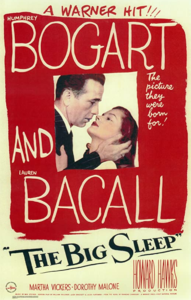
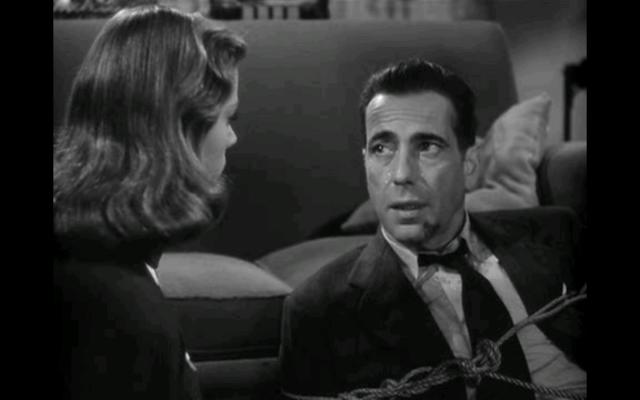
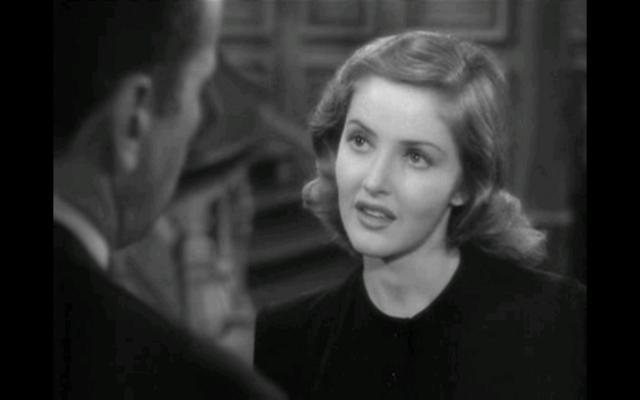

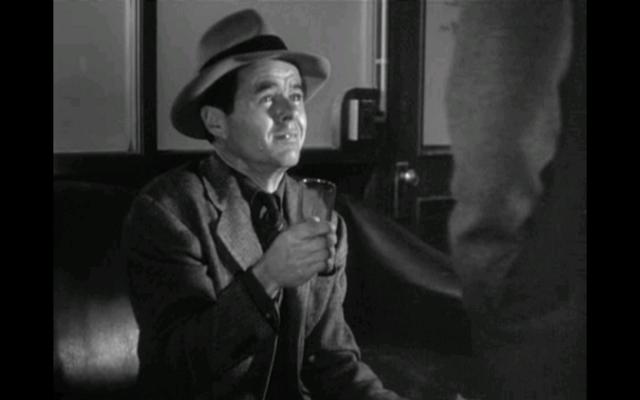
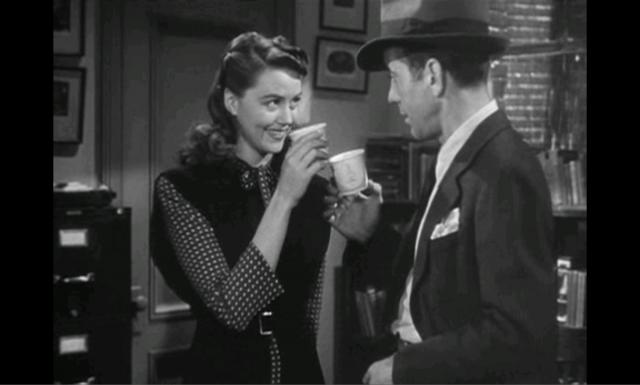
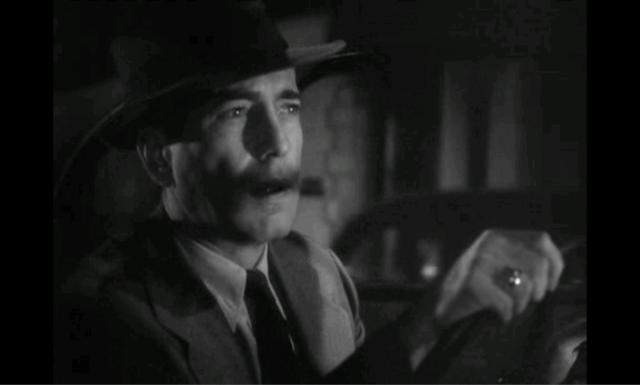
One thought on “Big Sleep, The (1946)”
A no-brainer must which holds up well on revisits.
I hadn’t seen this in a long time – so long that it was somewhat new to me again. To illustrate how ‘new’: The rental DVD is not marked well. One side mentions ‘1946’ and the other has no writing on it at all. A store-bought copy would clearly indicate on its cover what was on each side (since, in this case, it’s a double-sided affair). But this was a rental so things were a little confusing – and, without realizing it, I watched the original 1945 version – which I had never seen.
(The DVD also contains an extra which walks us through the cuts and changes.)
Frankly, there is very little difference between the two versions. Ultimately deleted from the version most people know is an almost-ten-minute sequence in a district attorney’s office, which does help things in terms of the very-layered plot. But, other than that, the two versions are just about the same – aside from some re-shoots for the latter version which were done to boost Bacall’s appeal. (She had just received bad reviews for her previous role in ‘Confidential Agent’, so there was an intent to regain the appeal she exuded with Bogie in ‘To Have and Have Not’.)
On this rewatch, I was surprised to realize the following:
– The film is not only a pip of a detective thriller but it is also funnier than I remembered – which is helped immeasurably by (not only the zinger-filled script but) Max Steiner’s sometimes whimsical score. The overriding element of this movie (on Hawks’ part) seems to have been the sheer enjoyment of making the film while not taking the project ultra-seriously. The film fairly bristles with the excitement of telling a good yarn – which is just what it is. I was reminded of a scene in Kazan’s ‘The Last Tycoon’, in which De Niro is explaining movie-making to Donald Pleasence – and he focuses on relating the crucial element of the audience’s enjoyment of “what happens next”. The cast and crew of ‘TBS’ seem to be their own audience as well.
– This is definitely a complex (as opposed to confusing) film, and you do have to pay attention (which I like). Seems the only ‘loose end’ I wasn’t able to tie-up (and obviously I’m not alone here) involves the chauffeur. But I like that some of the story’s details are messy (it gives it that ‘real life’ air).
– As opposed to another Hawks film like ‘His Girl Friday’, the dialogue in ‘TBS’ doesn’t really overlap as much. It does occasionally but mostly the actors seem to often pick up their cues rather quickly so that there’s no breath in between each other’s lines. It makes for terrific staccato.
– As for Peary’s criticism of Bacall, I think he’s off there. It’s unrealistic to expect an aspect of one performance to automatically pop-up in a different film. (~although that is what audiences often want.) I happen to think Bacall does have a “sexy edge” in ‘TBS’, but if she’s not as “nervous” that’s probably because her Vivian quite often has her emotions under firm control. (But she is also quite nervous on a few occasions.)
Needless to say, Hawks gets top-notch performances here across-the-board. But, in the supporting cast, I particularly like the understated work by Malone (the sexiest bookseller ever???) and Cook, Jr. (boy, he worked a LOT in Hollywood!).
Until today, I hadn’t given much thought to the story’s title. But doesn’t ‘The Big Sleep’ just = Death? Or would it = Murder, since it’s…’Big’? Hmm…